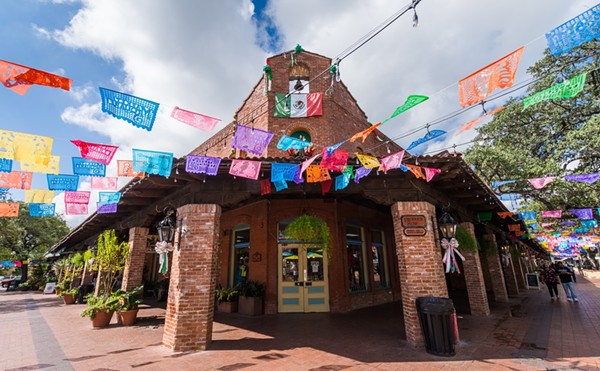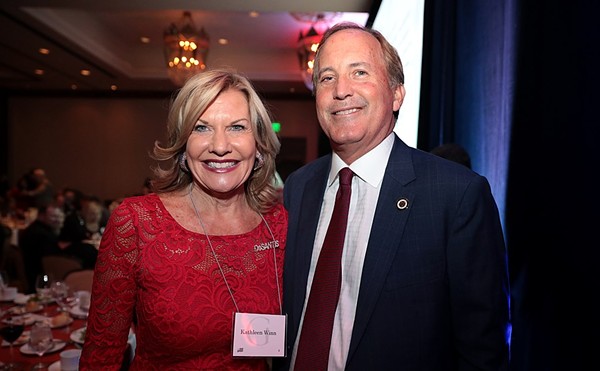Mexican-American art has always been problematic in this country, especially when it has to do with workers. Back in 1933, Nelson Rockefeller’s employees revolted against images of brown-faced workers and Lenin, and destroyed Diego Rivera’s “Man at the Crossroads,” a mural Rockefeller had commissioned the great artist to paint inside his New York City building.
Little did the Young Conservatives of Texas at UTSA know, but when they protested Luis Jimenez’s statue “Border Crossing,” which depicts the artist’s grandparents’ trip across the Rio Bravo and into the U.S., installed at the 1604 campus, they joined the anxious Rockefeller Center art critics.
In No One is Illegal, Mike Davis and Justin Akers Chacón argue such gestures are not harmless expressions of patriotic furor. In fact, if this rigorous and boldly political book is to be believed, they run straight back to the grim tradition of vigilante intimidation and violence against illegal immigrants that defined — and helped create — the West and Southwest.
It is Davis and Chacón’s argument that border disputes are less about race than they are about using race as a wedge against the rights of workers. And it has been effective, especially in California, where so-called Minutemen patrol the border with Mexico and Southern candidates woo their votes. Meanwhile, Davis writes:
“In those heartlands of traditional farm fascism — `California’s` Salinas, San Joaquin, and Coachella-Imperial valleys — indigenous immigrants from Mexico, Mixtecs especially, continue to labor in the early twenty-first century under conditions little different from those that the IWW protested in 1914 or against which the CAWIU rebelled in 1933.”
No One is Illegal is an attempt to put the plight of these workers in a personal, political, and social context, rather than simply a law-enforcement one. It is a hybrid book — half written by Davis, half by Chacón, half having to do with California, half covering the Southwest as a whole. Photographs by Julian Cardona document the faces of the unseen.
Davis’s section, however brisk and informative, feels more like a digest than a narrative. But it sets out the pattern of worker abuse that continues today and which goes like this: Economic downturns create white job anxiety. Ethnic workers, who were previously seen as paragons of hard-working virtue, begin to be portrayed as a threat to the nation, to its morality, and its economy. (California was unwelcoming to the Chinese, who built its railroads, to the Germans and Italians, who built its cities, to the Japanese, who built its farms, and the Filipinos who farmed them. Mexicans were abused all the way through).
Rhetoric leads to changes in the law, racist broadsides, and, all too often, violence. As Chacón puts it, there is an added irony to this whole equation since the parts of California, Texas, and the Southwest that are most heartily defended by the Minutemen were once part of Mexico.
After all, the same ethos of Manifest Destiny, which led to the annexation of this territory, has become the reigning ideology in the global economy. The result is ever-expanding markets, and ever-increasing displacement of workers. As Chacón explains, Mexicans don’t “go back to their own country” because they can’t live off the wages offered there — and those wages are the result of the foreign capital that has opened up Mexico’s economy to even poorer workforces.
Here, Chacón argues, is the true violence of the current system. In a climate of fear, when illegal aliens are still doing many jobs Americans won’t do and under threat of deportation, they can be intimidated from joining unions and speaking out. President Bush continues to push for a legal framework that would freeze these conditions: a guest-worker program that would allow immigrant workers to come and work at the discretion of corporations across all sectors of the U.S. economy. Hillary Clinton, though, has moved even further right of this position, hammering home a focus on “protecting our borders.” Perhaps UTSA’s Young Conservatives should invite her to be their commencement speaker. They will certainly like what they hear.
John Freeman is president of the National Book Critics Circle.


















